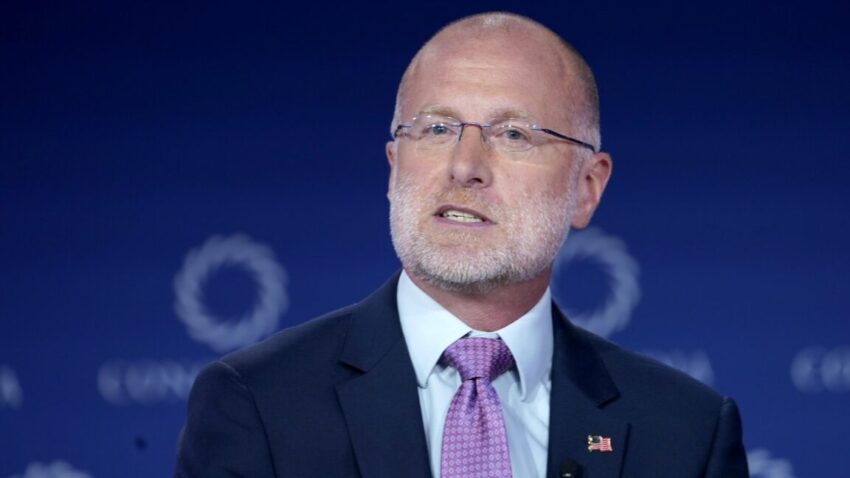
how about no fcc boss brendan carr Federal Communications Commission Chairman Brendan Carr has firmly stated that he will not abandon the agency’s contentious news distortion policy, despite a growing chorus of dissent from a bipartisan group of former FCC chairs and commissioners.
how about no fcc boss brendan carr
Background on the News Distortion Policy
The news distortion policy, which dates back to the 1960s, was established to ensure that broadcasters adhere to their public interest obligations. This policy mandates that news outlets provide accurate and fair reporting, holding them accountable for any misleading or false information disseminated to the public. Over the years, the policy has been a point of contention, especially in the context of evolving media landscapes and the rise of digital platforms.
Historically, the FCC has invoked this policy to regulate the conduct of broadcasters, particularly when allegations of misinformation arise. The agency’s authority to revoke broadcast licenses based on violations of this policy has been a powerful tool in maintaining journalistic integrity. However, critics argue that the policy is outdated and can be misused to suppress free speech and limit journalistic expression.
Recent Developments
In a recent turn of events, a petition was filed by a group of former FCC leaders, including both Democrats and Republicans, urging the current commission to repeal the news distortion policy. This bipartisan effort highlights the growing concern among former officials regarding the implications of the policy in today’s media environment. The petition emphasizes the need for a more modern approach to media regulation that aligns with contemporary standards of journalism and public discourse.
Brendan Carr’s response to this petition was unequivocal. In a post on social media platform X, he stated, “How about no.” This blunt dismissal underscores Carr’s commitment to maintaining the existing framework of the news distortion policy. He further asserted that under his leadership, the FCC would continue to hold broadcasters accountable to their public interest obligations, signaling a willingness to confront any perceived violations vigorously.
The Jimmy Kimmel Controversy
The context of Carr’s statement can be traced back to a recent controversy involving comedian Jimmy Kimmel. During a segment on his late-night show, Kimmel made remarks that some interpreted as misleading. In response, Carr indicated that ABC affiliates could face license revocation if they continued to air Kimmel’s program, citing the news distortion policy as the basis for potential action. This incident has reignited discussions about the boundaries of humor, satire, and journalistic responsibility in the media landscape.
Implications of Carr’s Stance
Carr’s refusal to repeal the news distortion policy raises several important implications for broadcasters and the media industry as a whole. Firstly, it reinforces the FCC’s role as a regulatory body with the authority to intervene in cases of alleged misinformation. This could lead to increased scrutiny of news programming, particularly in an era where misinformation is rampant and public trust in media is waning.
Moreover, Carr’s stance may have a chilling effect on broadcasters, who could become more cautious in their reporting and programming choices to avoid potential repercussions. The fear of losing a broadcast license could lead to self-censorship, where media outlets may shy away from controversial topics or critical reporting to stay within the bounds of what is deemed acceptable by the FCC.
Reactions from Stakeholders
The response to Carr’s decision has been mixed, with various stakeholders weighing in on the implications of the news distortion policy. Supporters of the policy argue that it is essential for maintaining journalistic standards and protecting the public from misinformation. They contend that the FCC’s oversight is necessary to ensure that broadcasters fulfill their obligations to provide accurate and reliable news.
On the other hand, critics, including the bipartisan group of former FCC leaders, argue that the policy is outdated and can be detrimental to free speech. They assert that in a rapidly changing media landscape, where digital platforms dominate, the FCC should focus on more relevant issues rather than enforcing a policy that may stifle innovation and creativity in journalism.
The Broader Context of Media Regulation
The debate surrounding the news distortion policy is part of a larger conversation about media regulation in the United States. As technology continues to evolve, traditional media outlets face increasing competition from digital platforms, social media, and alternative news sources. This shift has raised questions about the relevance of existing regulations and the need for a comprehensive review of media policies to adapt to the current landscape.
In recent years, the FCC has faced criticism for its handling of various media issues, including net neutrality and ownership regulations. The agency’s approach to regulating content and ensuring fair competition has been scrutinized, with calls for reform coming from both sides of the political spectrum. As such, Carr’s steadfastness in maintaining the news distortion policy may be seen as part of a broader effort to assert the FCC’s authority in an increasingly complex media environment.
Future Considerations
Looking ahead, the future of the news distortion policy remains uncertain. While Carr has made it clear that he intends to uphold the policy, the ongoing discussions among former FCC leaders and other stakeholders may prompt further examination of its relevance. As public discourse continues to evolve, the FCC may need to consider adjustments to its regulatory framework to better align with contemporary media practices.
Additionally, the role of technology in shaping news consumption cannot be overlooked. With the rise of social media and digital platforms, the dissemination of information has become more decentralized, complicating the regulatory landscape. The challenge for the FCC will be to navigate these changes while ensuring that broadcasters remain accountable for the content they produce.
Conclusion
Brendan Carr’s refusal to abandon the news distortion policy reflects a commitment to maintaining regulatory oversight in the broadcasting sector. As the media landscape continues to evolve, the implications of this decision will be closely monitored by industry stakeholders, policymakers, and the public. The ongoing debate surrounding the policy underscores the need for a nuanced approach to media regulation that balances accountability with the protection of free speech and journalistic integrity.
Source: Original report
Was this helpful?
Last Modified: November 15, 2025 at 3:38 am
0 views














